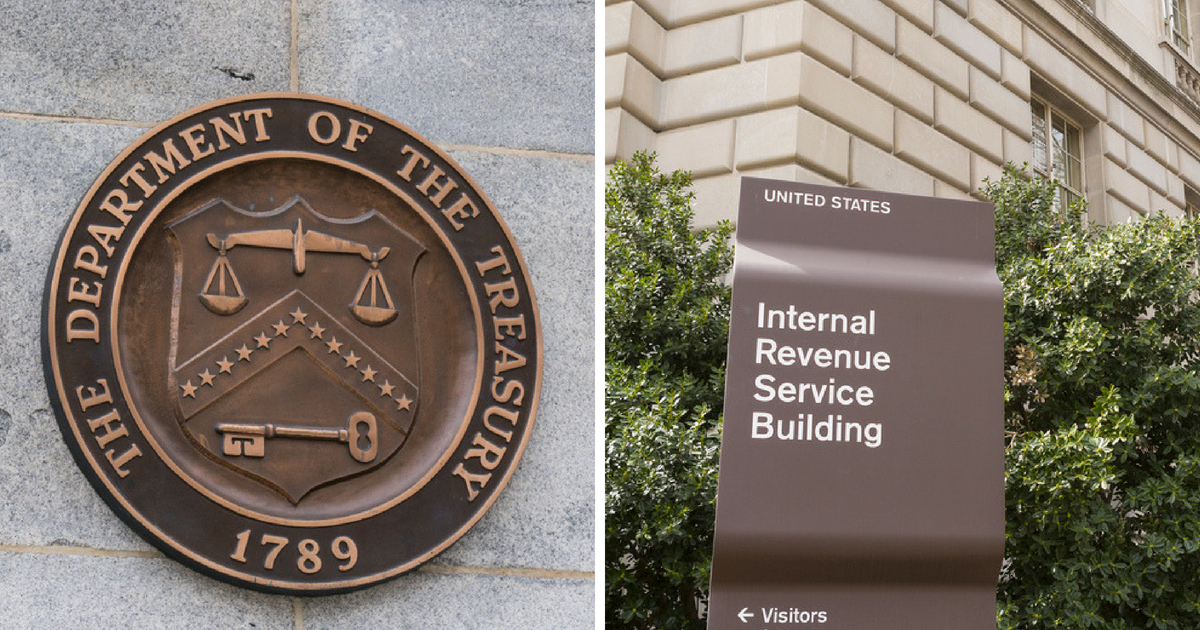
Feds Propose Move To Block High-Tax State Loopholes
Federal officials have proposed regulations that would block attempts by high-tax states to get around a cap on deducting state and local taxes on federal returns.
The proposed regulations issued last week by the U.S. Treasury and the Internal Revenue Service said any effort by a state to create a charitable deduction in return for a state credit where the tax filer makes money out of the deal by also deducting that amount on federal returns is illegal.
It states that the Treasury Department and the IRS believe “when a taxpayer receives or expects to receive a state or local tax credit in return for a payment or transfer to an entity listed in section 170(c), the receipt of this tax benefit constitutes a quid pro quo that may preclude a full deduction under section 170(a).”
This essentially nullifies a number of states’ laws allowing for donations to a state-run charity that gives back state tax credits. They were an effort to work around the $10,000 cap in state and local tax deductions on federal returns.
Illinois lawmakers were close to passing a SALT (State And Local Tax) cap workaround, offering an 85 percent deduction on state taxes in return for a donation to the “Illinois Education Excellence Fund” that would then become a charitable contribution in the eyes of the IRS.
Tax Foundation analyst Jared Walczak said the schemes work by essentially renaming your local tax to get around the federal deduction limit.
“You’re just changing the name of how you’re paying the state your taxes,” he said.
Walczak said the state and local tax deduction essentially served to subsidize high-tax areas by allowing wealthy residents the ability to write off the high cost of local government.
How the $10,000 limit on the property, state tax deduction could hurt the suburbs https://t.co/5d2yLJ9JMM via @dailyherald
— Illinois Education Association (@ieanea) December 18, 2017
“If you’re from Chicago, you can no longer make someone from Birmingham, Alabama, pay for your taxes and cost of living as much as you used to be able to,” Walczak said.
What the proposed IRS regulation clarified was what could and couldn’t be deducted using these programs. If a tax filer benefits from an 85 percent state deduction on a $1,000 donation, they’re only able to deduct the last 15 percent on their federal returns since they would essentially be profiting from the write-off.
The proposed regulation does not affect the value of a charitable donation to the Invest in Kids Fund, Illinois’ new private school scholarship program, which gives a 75 percent deduction on state tax returns in exchange for a donation to help a student in Illinois pay for tuition to an accredited non-public school. Donors to the program will be able to deduct the remaining 25 percent of the donation on their federal filing.
Illinois residents who filed itemized returns in 2015 averaged more than $12,000 in property tax deductions, since a mid-sized suburban home could often cost that much or more in property taxes annually.
A number of states have also sued the Trump administration over the cap, claiming it’s unconstitutional.
Cole Lauterbach reports on Illinois government and statewide issues for Illinois News Network and Watchdog.org.
This article originally appeared on Watchdog.org.
Truth and Accuracy
We are committed to truth and accuracy in all of our journalism. Read our editorial standards.
Advertise with The Western Journal and reach millions of highly engaged readers, while supporting our work. Advertise Today.











